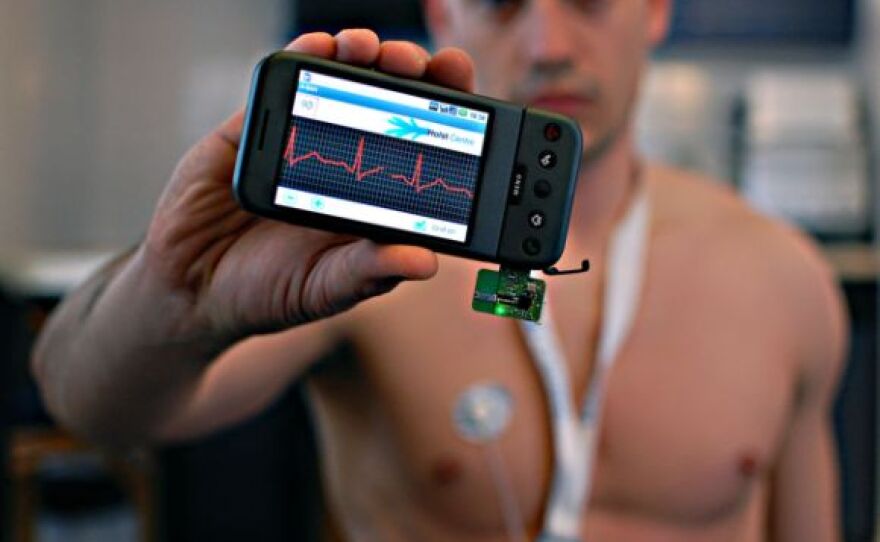Digital medicine just got a boost because Scripps Health announced a $3.75 million grant from the Qualcomm Foundation. Some are saying this will help the push to revolutionize healthcare.
The Scripps Translational Science Institute will use the money to develop innovative digital technologies.
Dr. Eric Topol, chief academic officer of Scripps Health and director of the Scripps Translational Science Institute in La Jolla, said the money will help advance clinical trials of wireless bionsensor systems, diagnostic tests and embedded sensors for predicting certain types of illnesses.
Three of the high-priority programs include:
- Clinical trial validation of biosensor systems: Tiny sensors floating in the blood stream looking for health problems.
- Development of mobile apps for embedded sensors: Devices looking for certain gene expressions, gene mutations, proteins or antibodies that provide molecular signatures of medical conditions. If something is detected, the sensor sends molecular signatures to an app on the patient’s smartphone, triggering to seek treatment.
- Handheld genotyping for precisely prescribing medications: STSI is testing a point-of-care chip genotyping platform that can determine within 20 minutes a patient’s DNA compatibility with certain drugs.
The wireless sensors are expected to be able to predict and track heart attacks, Type 1 Diabetes and certain types of cancer. Topol said although the idea is futuristic, these sensors could help predict a heart attack one or two weeks before it would even happen.
He said the money to help fund a three-year program is important because it allows for thorough testing of these devices.
“One of the most important parts of this whole program of our digital medicine is to prove that these very exciting technologies fulfill their promise,” he said.
Topol also said San Diego is at the forefront of digital medicine in the country.
"We're just in a great area to tap into many of these innovative technologies to test them and hopefully advance them into daily care,” Topol said.
He said not only are the healthcare technologies becoming more efficient, they are also becoming more affordable due to wireless technology. For example, sleep laboratories in hospitals charge about $3,000 a night, Topol said. Instead of having to spend a night in an unfamiliar room strapped to equipment, wireless technology can make the same diagnoses for less than $100.
Don Jones, vice president of global strategy and market development at Qualcomm Life and the chief digital officer of the STSI, agrees that San Diego is an optimal city to combine healthcare and technology.
“San Diego’s becoming the beehive of activity around solutions that use wireless and healthcare both in the development stage, but also I think increasingly in the clinical stage,” Jones said.
Jones said the funding and support from Qualcomm has given Scripps Health a push to make ideas become reality.
“Good clinical cases showing the efficacy of the product that has been made lead to good business cases,” he said.
Researchers develop good ideas for products, but it is difficult without financial backing to implement the idea into clinical research trials, Jones said.
One of the first projects benefitting from the grant is a study of mobile healthcare software platform created by AirStrip Technologies, Inc of San Antonio. Topol is leading the study, which will determine how mobile monitoring of patients by physicians may improve clinical workflow and patient recovery rates. All patients in the Intensive Care Units would be monitored by their doctors wirelessly.







